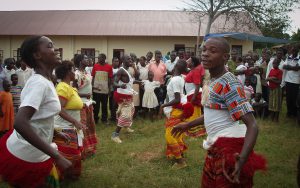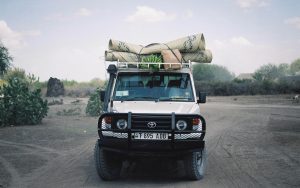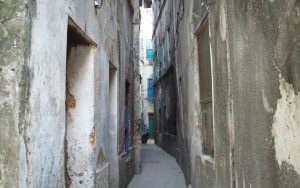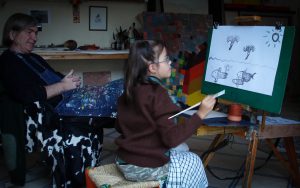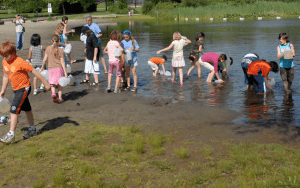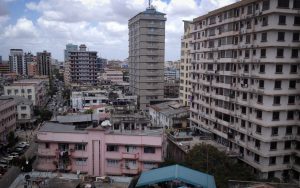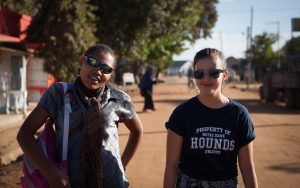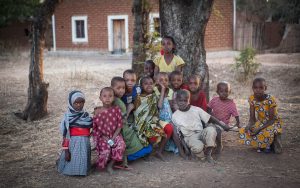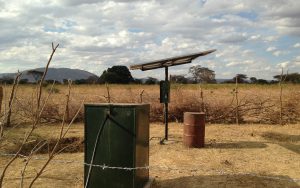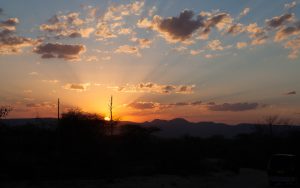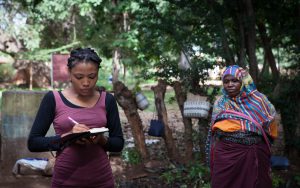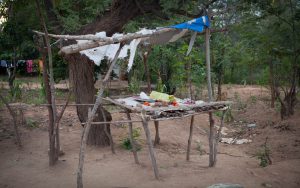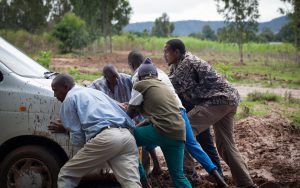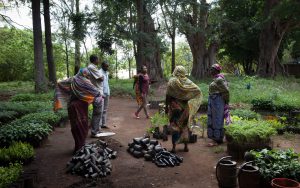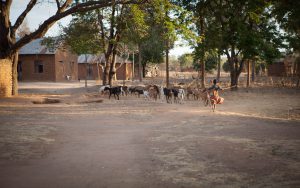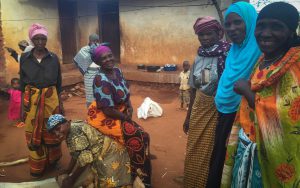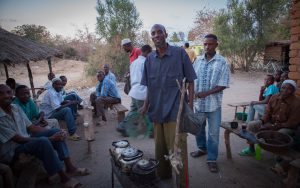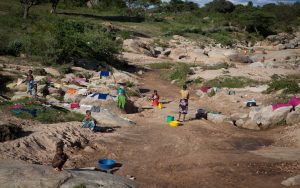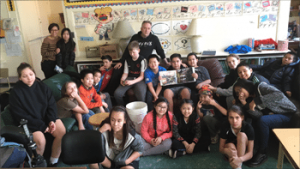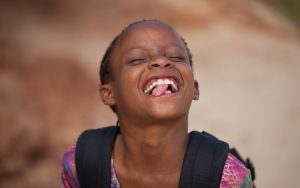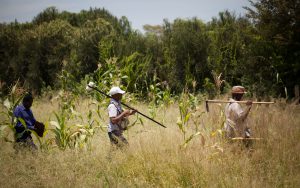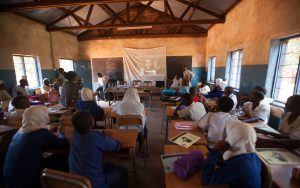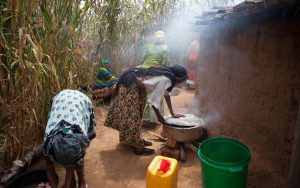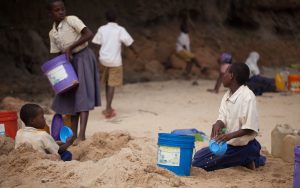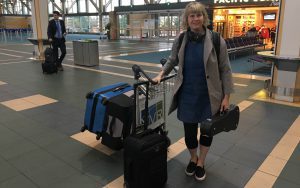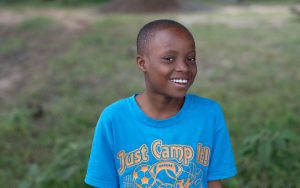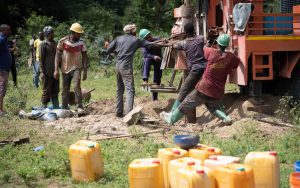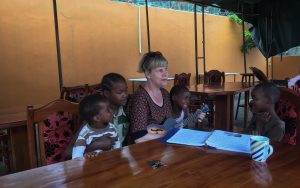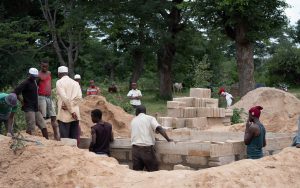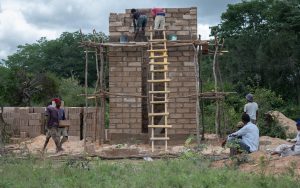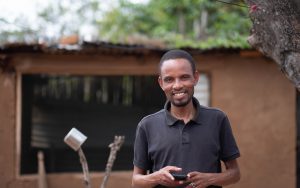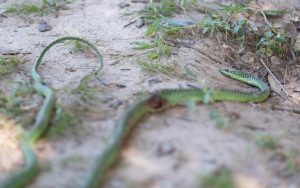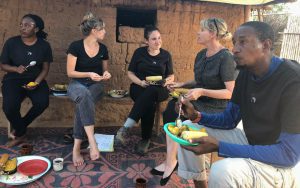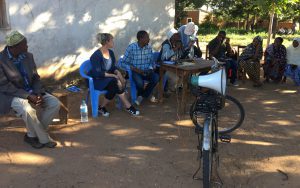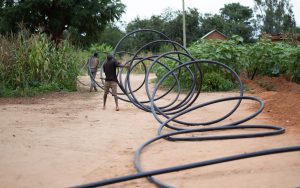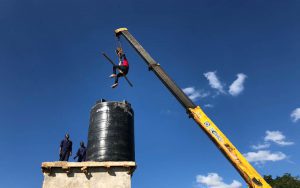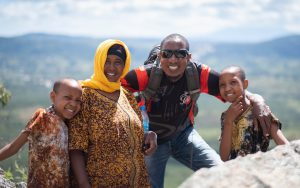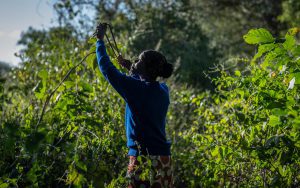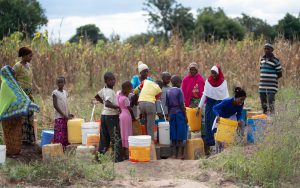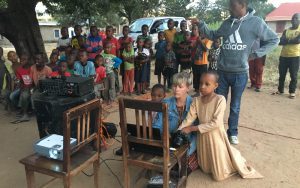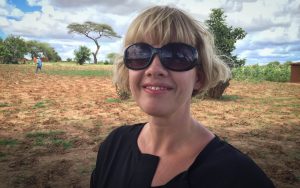Despite the recent setback, life continued—progress continued. It was the second day of Ramandan and most people in Iyoli were fasting, including Baraka and Miriam. Nobody was eating or drinking water during the day, and then at sunset, all the families were going to share meals together. The mood was quiet and energy was low.
On the day water tower was to be placed at the top of the tower, he had brought along Baraka, Mariam, and Shadia. The extra trenches were still there, and when we arrived at the site, a few of the villagers volunteered to fill them in, without breakfast or water. When the dirt had filled the final trenches, the pipes were ready for hookups.
The engineer was cutting costs wherever possible, which was more evidence toward him being broke. He thought that people in the village could just hoist the tank up the side with their bare hands, a silly and dangerous notion, but we tried it anyway. Workers tied ropes around the big tanks, and then two guys at the top of the tower pulled while five guys at the bottom pushed from a makeshift bridge. Moshi and I were sure that with one wrong move, we would have a death on our hands, so we called it off.
What we really needed was a crane, and as luck would have it, as we were driving in, Moshi passed one of his friends working on the tarmac road leading into the village. This man just so happened to also be a crane operator, so Moshi called him and asked him to come to the site to get the sim tank up. The crane rolled in later that day, and half an hour later, the water tanks were on top of the tower.
The work on this project happened in a frenzy of activity over an hour or two, but then everything wound down and we had to wait for the next event, which meant spending hours sitting and watching and playing.
While we were waiting, Juma shot a tiny bird with his slingshot and then gave it to Miriam and said that it was for dinner. I thought it was a joke—but it wasn’t. Miriam described exactly how she was going to pluck and roast it over a fire. She looked at me as though I were crazy not to take it for myself.
One of the women in the village cooked rice and beans for lunch for me and Shadia (who was only six and not required to fast). After we finished eating, with Miriam and Baraka watching, they got up and took our plates to clean. That’s just what you did when you were a girl here—you cooked and cleaned and fetched water. I helped them clean up too. Life was not easy, but these young girls managed to have fun and have truly stolen my heart.
The girls fell asleep on the ride home, tired and dirty, and I thought about how hard they worked in Kondoa town. It’s the same everywhere in Tanzania.
Miriam carried that dead bird in her pocket all day and brought it home. That evening, after sundown, she was going to pluck it and share it with Shadia and her four other brothers and sisters for their big Ramadan dinner.




